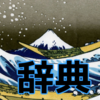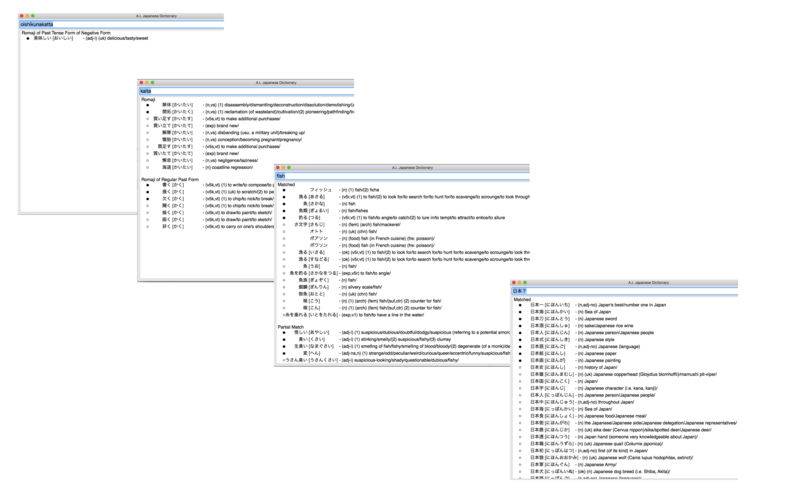点击按钮跳转至开发者官方下载地址...
With most dictionaries you need to know the root word before you can find the word you're looking for. Which is great if you've been studying for 10 years already. But one of the most frustrating things when you are a beginner is that you don't know enough grammar to work out what the root word is.
AI Japanese Dictionary has a built in reversing grammar engine. It takes care of all that for you. It understands Japanese grammar rules so you only need to enter the word as is - and the dictionary works out the root word for you and then looks it up. Fast.
For example:
Search for たべられる (taberareru) in most dictionaries and you won't find anything. Search for it using AI Japanese Dictionary and it will tell you that this is the "Able to Do" form of たべる (taberu), "(v1,vt) to eat".
Go further and search for たべられない (taberarenai) and find it is the "Regular Negative of the Able to Do" form of たべる (taberu).
Or even further and search for たべられなかった (taberarenakatta) and find this is the "Past tense of the Regular Negative of the Able to Do form" of たべる (taberu).
The grammar smarts also understands adjectives, so it knows that おいしくなかった (oishikunakatta) is the past tense of the negative of おいしい (oishii), (adj) delicious.
Of course you can search for romaji, hiragana, katakana, English, kanji...
It's also smart enough to look for katakana if you put in hiragana by mistake (or the other way around). So even though you searched for べっど (beddo) it finds ベッド (beddo), (n) bed.
If you remember one or two kanji from a word, but not the whole thing, then just put "?" for the ones you don't know and the dictionary will find all the possible words that match.
The dictionary includes over 200,000 words from the famous Monash University EDICT dictionary, and it doesn't store all the alternatives, it works them out on the fly, so the whole app is quite small and no internet access is required.
Finally. Using a Japanese dictionary just got a whole lot less frustrating.







